The White Death : Frozen Valor
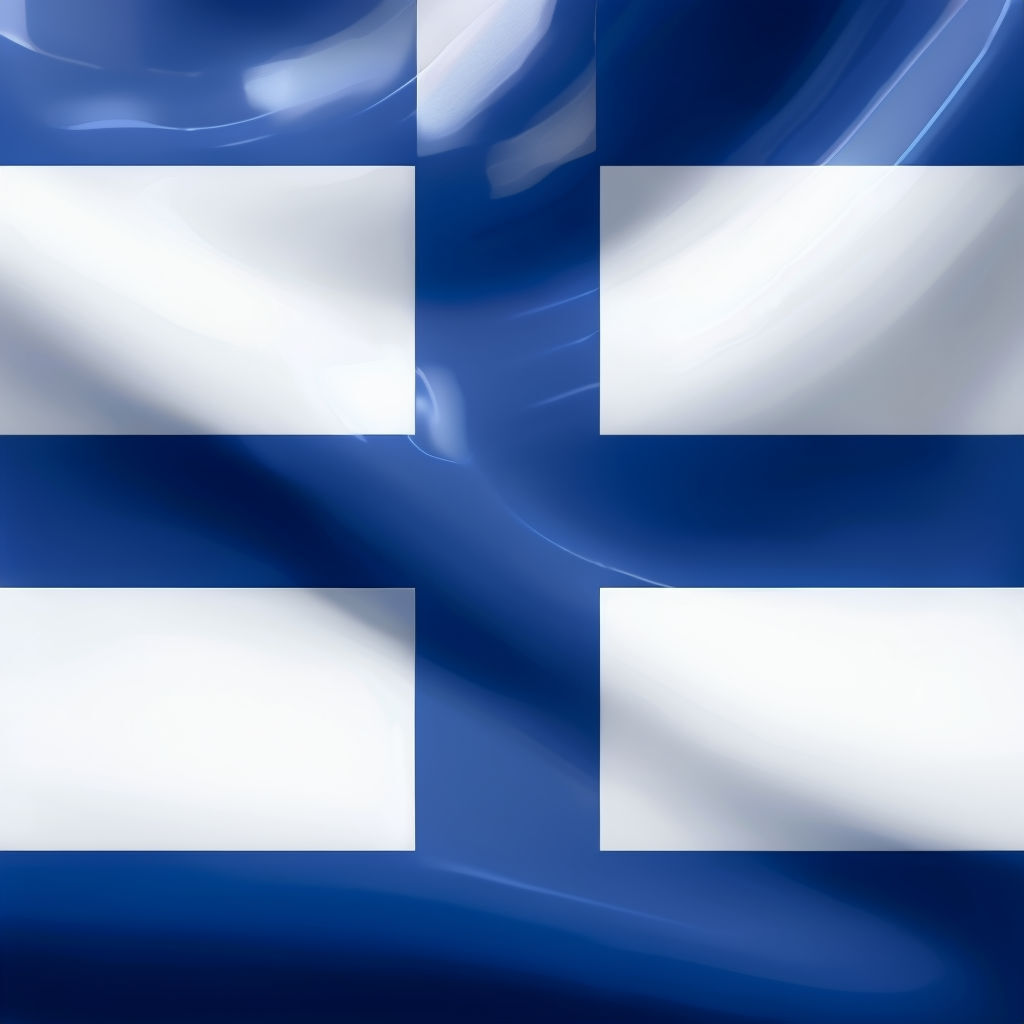
Prologue
The snow fell in silence, a curtain of white that erased the world. Alvi Myllylä stood still, his breath a cloud of frost that mingled with the storm’s fury. The pine forest, its branches heavy with ice, loomed like a cathedral of shadows. Each step he took disappeared beneath the fresh layer of snow, swallowed by the cold that seemed to stretch on forever. The land had become a frozen ocean, and somewhere beyond its white horizon lay the enemy.
He gripped his rifle tighter, feeling its metal bite into his bare skin. The cold was relentless, a force that gnawed at his bones and whispered promises of sleep. But sleep was death. Out here, in the silence of the Karelian wilderness, there was no room for weakness. The Soviets were close, their numbers overwhelming, their tanks rumbling like thunder beneath the snow. Alvi knew they would not stop. They were a wave of iron and fire, intent on consuming everything in their path.
But the forest was his, and so was the winter.
He adjusted the white camouflage cloak draped over his shoulders, blending into the landscape. To the untrained eye, he was invisible—a ghost moving through the trees. The Soviets called the Finnish soldiers “the White Death,” and he intended to live up to the name. Each man was a shadow, a whisper, slipping through the forest with silent steps. The deep snow and bitter cold that plagued the Russians were his allies, the weapons of an ancient land that had protected his people for centuries.
As he crept forward, Alvi felt the weight of history pressing on his shoulders. His father had taught him the old stories, the tales of heroes and battles fought long before this one. Men like Väinämöinen, the wise one, who had sung the world into existence; or Lemminkäinen, the fearless warrior who had braved the dark waters of the Tuonela. Alvi had listened as a boy, his eyes wide, as his father spoke of the monsters they had faced—wolves with eyes like fire, giants of stone who shook the earth.
Now, those stories seemed closer than ever. The Soviet soldiers were the new beasts, their eyes cold, their faces masked by frost and fear. The tanks that crushed the forest beneath their tracks became iron giants, roaring as they advanced. In the howling wind, Alvi could almost hear the echoes of the past, the voices of heroes urging him to stand, to fight.
He stopped, crouching low behind the shelter of a snow-covered boulder. The sound of boots crunching through the ice drifted toward him, faint but unmistakable. The Soviets were coming. His heart pounded, a drumbeat in the silence. He took a deep breath, his fingers flexing around the trigger. The forest held its breath with him.
He thought of the tales once more. “Heroes rise when the night is darkest,” his father had said. Alvi glanced up at the sky—grey and heavy with clouds, the light of day barely more than a pale glow through the storm. The darkness was everywhere, and the cold reached for him like a hungry beast. But the land, his land, still lived. The snow underfoot, the frost on his breath, the pine trees that creaked as the wind swept through them—they were all a part of him, as much as he was a part of them.
This was not just a fight for survival; it was a war for the soul of the land. The Soviets would never understand that. They were intruders, stumbling blindly into a realm that did not belong to them. Alvi’s ancestors had known these woods, had called upon its spirits and hunted its beasts. Now, it was his turn.
As the Soviet patrol came into view, their figures dark against the snow, Alvi raised his rifle. His breath slowed, and the world around him fell into a stillness that felt almost sacred. The old stories mingled with the present—heroes fighting monsters, battling the dark forces that sought to consume the land. He was one of them now, a guardian of his people, of his homeland.
The trigger clicked, and the crack of his rifle echoed through the trees, cutting through the storm. The first Soviet soldier fell, a dark shape crumpling into the snow. Alvi vanished into the forest, his footsteps already erased by the wind, as the snow swallowed him whole.
The winter was both curse and weapon. For those who belonged to the land, it was a shield, a cloak that hid them from the eyes of their enemies. And for those who did not—those who sought to conquer—it was a trap, an endless sea of white that would swallow them whole.
Alvi moved like a ghost, like a hero of old, as the snow continued to fall.
--
Part 1: Into the White
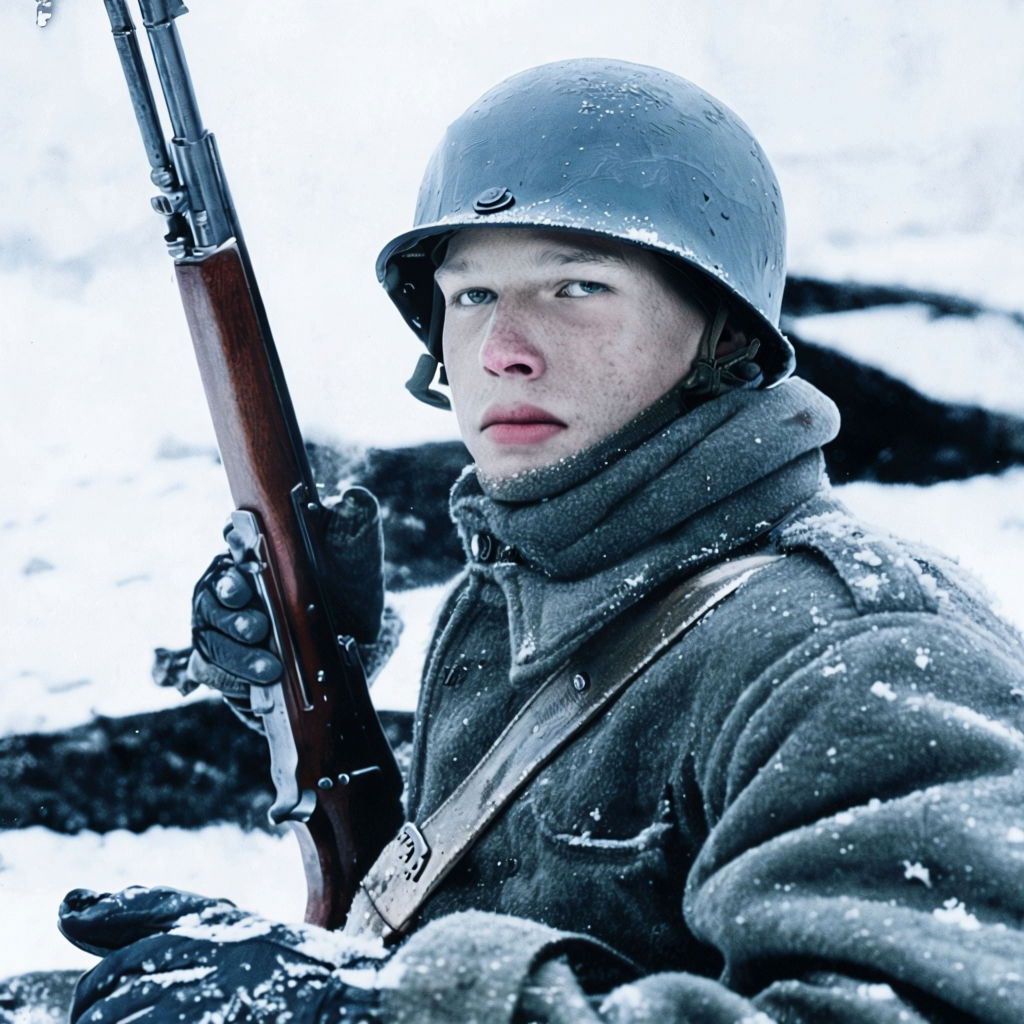
Alvi Myllylä moved swiftly through the forest, the snow muffling his footsteps. The Soviets were close, but he had the advantage; he knew these woods like the lines on his hands. Every tree, every frozen stream was a marker, a friend. He ducked under a low-hanging branch and paused, listening to the faint crackle of a distant Soviet radio and the heavy footfalls of boots that betrayed their unfamiliarity with the terrain.
He scanned the landscape, searching for a position to lay his next trap. Ahead, he spotted an outcropping of rock partially buried in snow. Perfect. Alvi hurried over, taking care to leave no tracks. From beneath his coat, he pulled out a bundle of grenades, rigging them carefully along the path he knew the Soviets would take. A thin tripwire, almost invisible against the snow, was all it would take.
He exhaled, his breath visible in the freezing air, then retreated into the dense pines. The forest swallowed him, as it always did. This land had sheltered his ancestors for generations, and today, it would shield him again.
The Soviets came into view, a small group in white camouflage, but their movements were slow, labored. The cold bit deep into their skin, and their eyes were wary. Alvi watched from a distance, rifle ready, as they inched closer to his trap.
One soldier stumbled, catching his foot on the tripwire. There was a moment—a breath of silence—before the explosion shattered the stillness. Snow and earth flew up, and when the smoke cleared, two figures lay motionless, dark patches against the white. The others scrambled, shouting orders in Russian as they scattered. Alvi fired twice, dropping another man before the rest vanished into the woods.
He melted back into the shadows, his heart steady. Guerilla tactics, quick and precise—hit and vanish. That was the only way they could survive this war. Outnumbered, outgunned, but not outmatched. The snow was their ally, and the forest was their home.
Part 2: Nightfall
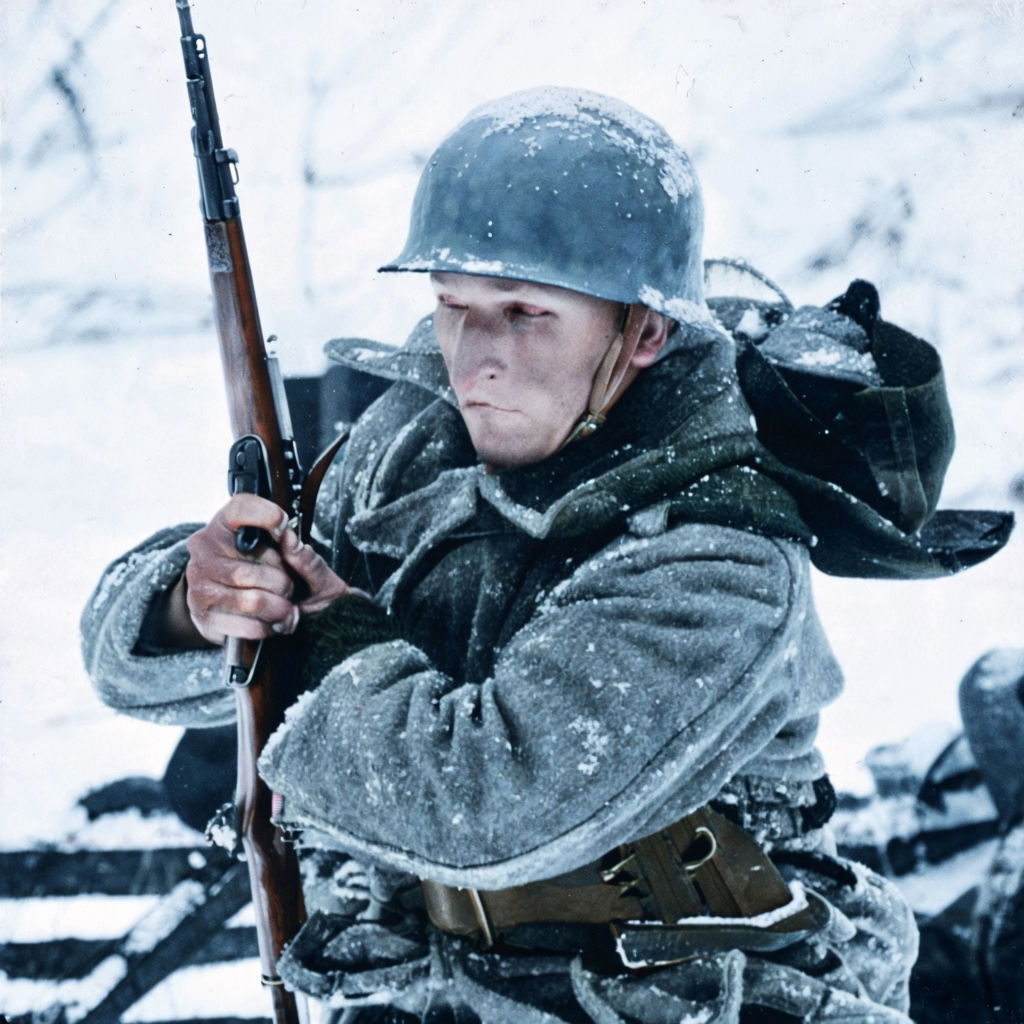
Nightfall came quickly in the winter, and the temperature plummeted. Alvi crouched beside a small fire he’d built in the shelter of a rock formation, its light carefully shielded from view. He rubbed his hands, trying to coax warmth back into his fingers. The cold, even for someone as used to it as he was, felt like knives slicing through his skin.
As he ate the last of his dried bread, his thoughts drifted to the stories of old. His father had spoken of the *hiisi*, the evil spirits that haunted the woods, luring travelers into the cold to die. Sometimes, as the wind whispered through the trees, Alvi wondered if those spirits were real. He had seen men disappear into the snow, never to return, their bodies claimed by the frost.
But his father had also told him about the *väki* of the forest—the guardian spirits who protected those who respected the land. Alvi hoped they watched over him now. He closed his eyes and murmured a quick prayer, calling upon Tapio, the god of the forest, to guide his steps.
He stayed alert, his ears tuned to the sounds around him. The distant crack of a branch, the whisper of the wind, the faint rustle of snow falling from a tree—all could be signs. And then he heard it, the soft crunch of footsteps.
He grabbed his rifle, snuffed the fire, and waited. The footsteps grew louder, and through the trees, he caught a glimpse of movement. His finger hovered over the trigger, but he hesitated. Something was off. The shape was too small, the gait too familiar.
A voice called out, low and cautious. “Alvi?”
Relief flooded through him as he recognized the voice. It was Väinö, one of his closest comrades. Alvi stepped forward, revealing himself.
“Thank the gods,” Väinö said, his breath heavy with exhaustion. “We’ve lost so many today.”
Alvi nodded. “I took out a few patrols, but they keep coming. We need to regroup.”
Väinö’s eyes were shadowed. “The Soviets are pushing hard. We’ll need to fall back to the ridge. There’s a shelter there where we can rest, but we have to move before they spot us.”
Together, they slipped through the forest, their movements synchronized. The night was their shield, and they used it well, weaving between the trees like ghosts. The cold gnawed at their faces, their hands, but they pressed on, driven by the knowledge that to stop meant death.
Part 3: Spirits in the Storm
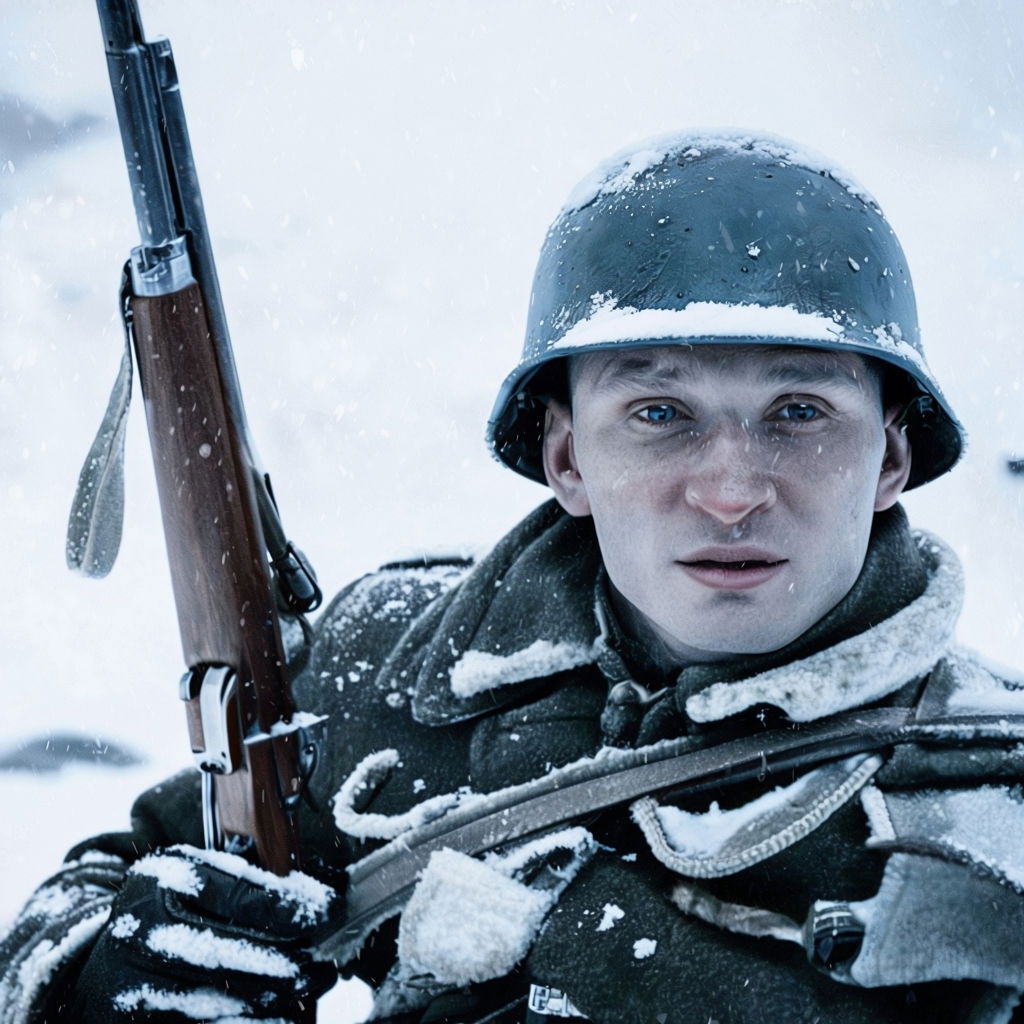
As they neared the ridge, a blizzard began to blow in. Snow whipped around them, blinding and fierce. The world shrank to the space of a few steps ahead, and the wind howled like a living thing. Alvi could barely see Väinö in front of him, the man’s figure disappearing into the white.
“Stay close!” Alvi shouted over the roar of the storm. He reached out, grabbing Väinö’s arm to keep them connected as they pressed forward. The snow was up to their knees now, and each step was a battle. The cold sank into their bones, threatening to pull them under.
It was then that Alvi felt it—a presence in the storm. At first, it was just a shadow at the edge of his vision, but it grew. He glanced up and saw it—an enormous shape, moving through the blizzard, a silhouette that towered over them. His breath caught. Was it one of the Soviet tanks, somehow finding its way through the storm? But no, it moved too silently, too smoothly.
The stories came rushing back. The great bear, the *karhu*, protector of the land. In the swirling snow, the shadow seemed to take the form of a bear, its eyes glowing with a fierce light. For a moment, Alvi felt a surge of warmth, as if the very spirit of the forest was walking beside them, leading them to safety.
“It’s Tapio’s bear,” Väinö whispered, his voice awed. “He’s guiding us.”
Alvi didn’t know if it was true or if the cold and exhaustion were playing tricks on his mind, but he didn’t care. He pressed on, following the shape that led them through the storm. With every step, the wind seemed to lessen, and the snow grew lighter, parting like a curtain.
They reached the ridge at last, and there, hidden among the rocks, was the shelter—an old hunter’s cabin they had used before. They stumbled inside, collapsing against the walls as they slammed the door shut. The wind screamed outside, but inside, they were safe. Alvi looked out the small window, but the shadow was gone, swallowed by the storm.
“It was real,” Väinö murmured, pulling his coat tighter around him. “The land watches over us.”
Alvi nodded, though he said nothing. He wasn’t sure what he had seen, but he felt the truth of it deep in his bones. This land, this cold, this war—it was more than just men and bullets. It was a battle for survival, for their home, and for the spirits that had protected it long before they had come to fight.
He set down his rifle and pulled out his knife, sharpening it in the dim light. The storm would pass, and when it did, the Soviets would come again. But he would be ready. The forest was his ally, the snow his shield. And he was not alone.
Part 4: The Rising Dawn
When dawn broke, the blizzard had left the land in silence, blanketing everything in a heavy, glittering snow. Alvi and Väinö prepared themselves, checking their weapons, their supplies. The enemy would not rest, and neither could they.
As they moved out, Alvi paused, looking back at the ridge. For just a moment, he saw it again—the shadow of the bear, standing tall among the trees. He felt a warmth in his chest, a reassurance that the spirits of the land walked with him, just as they had with the heroes of old.
With a nod, he turned and followed Väinö into the forest, disappearing once more into the white. The battle was far from over, but as long as the winter stood by his side, he knew they would endure.
--
Epilogue: The End of the Winter War
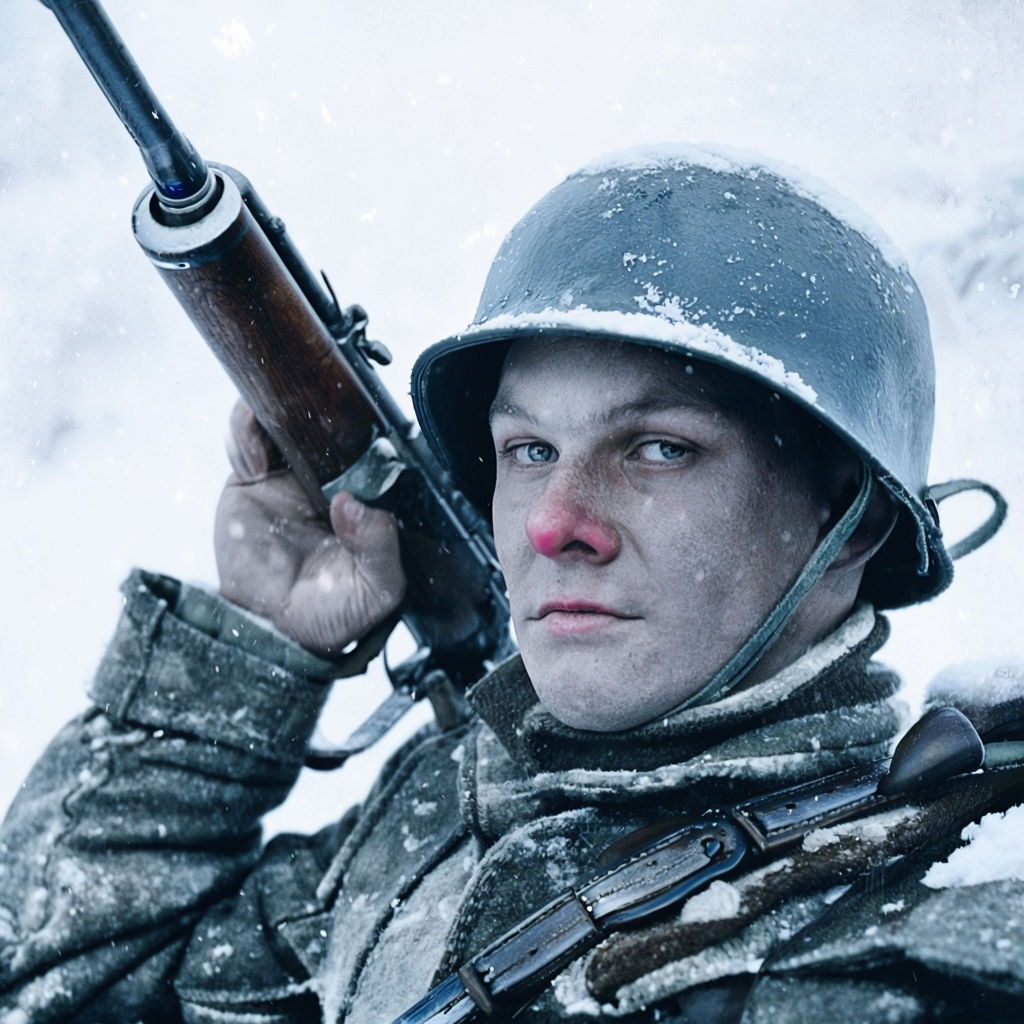
The war ended in March, when the snows were beginning to melt but the air still held the sharp bite of winter. The official news came through the crackle of an old radio, its voice weary and broken like the land itself: a peace treaty had been signed. The Finnish government had no choice but to cede territory to the Soviet Union in exchange for the end of hostilities. The land they had fought for, bled for, was lost.
Alvi Myllylä stood at the edge of the forest, looking out over the white expanse that stretched to the east. In the distance, smoke from the Soviet camps still drifted up, dark columns against the pale sky. For months, this forest had been his sanctuary, his battleground.
Now, it felt like a graveyard, filled with the memories of comrades who would never return.
The Soviet forces had come in waves, endless and relentless, but Alvi and his fellow soldiers had held the line for as long as they could. They had used every trick they knew—ambushes in the snow, attacks under the cover of blizzards, and silent strikes from the shadows. They had become phantoms, the "White Death" that haunted the enemy.
But numbers alone could not decide the outcome. Despite the victories in the snow-covered woods, despite the bravery of those who fought alongside him, Finland could not withstand the sheer force of the Soviet onslaught. The treaty was signed not in triumph, but in survival.
Alvi felt the weight of it—the sacrifices made, the friends he had lost, and the scars that would remain. He had fought to defend his homeland, and now it felt as if a piece of it had been torn away forever. The ceded territory included the forests he had grown up in, the lakes where he had learned to fish, and the fields his family had tended for generations.
He turned and made his way back to the village, where the surviving men and women were already gathering what they could. The government had ordered an evacuation—families were to leave their homes behind and move west, deeper into Finnish territory. The roads were crowded with carts and sleds, people bundled in coats, their eyes hollow from the cold and the strain of war.
Alvi found Väinö among them, his old friend looking as weathered and worn as he felt. They exchanged a silent nod, and for a moment, the memories of their battles together filled the space between them—the nights they had fought side by side, the traps they had set, the narrow escapes through snowstorms that seemed to move with a will of their own.
“Looks like it’s over,” Väinö said, his voice rough.
“For now,” Alvi replied. “But it doesn’t feel like an end.”
Väinö nodded, his gaze drifting toward the east, where the land they had fought so fiercely to defend now belonged to another. “It’s strange, isn’t it? To leave it behind.”
Alvi looked back at the forest, where the snow was beginning to melt and the first hints of green could be seen. “We fought for it, every inch of it. The land knows that, even if they don’t.”
The two men loaded their packs and joined the line of villagers heading west. Alvi glanced up at the sky. The storm clouds had parted, and a pale sun shone through, its light reflecting off the snow. He thought of the old stories—of Väinämöinen and the heroes who had walked this land before him. The tales spoke of cycles, of battles lost and won, and the resilience of the people who remained.
The Winter War had ended, but it had become part of the land’s memory, and part of his own. For every tree, every stream, and every inch of snow-covered ground he had fought upon, he knew that the story of their resistance would endure. The forest, the spirits, the spirits of his fallen comrades—they would remember.
Years later, when Alvi returned to this place, he would tell those stories to the next generation. They would sit around fires, much like his father had done with him, and he would speak of the heroes who rose when the night was at its darkest, of the battles fought not just against men, but against the very cold that had seeped into their bones. And in those stories, the land would live again.
For now, Alvi walked west, leaving behind the frozen fields and the land he had loved. But in his heart, he knew that someday, the snow would melt, and the forest would stand tall, waiting for the return of those who remembered.
THE END
The Winter War took place from November 30, 1939, to March 13, 1940. It began when the Soviet Union invaded Finland, and it lasted for 105 days before concluding with the signing of the Moscow Peace Treaty.